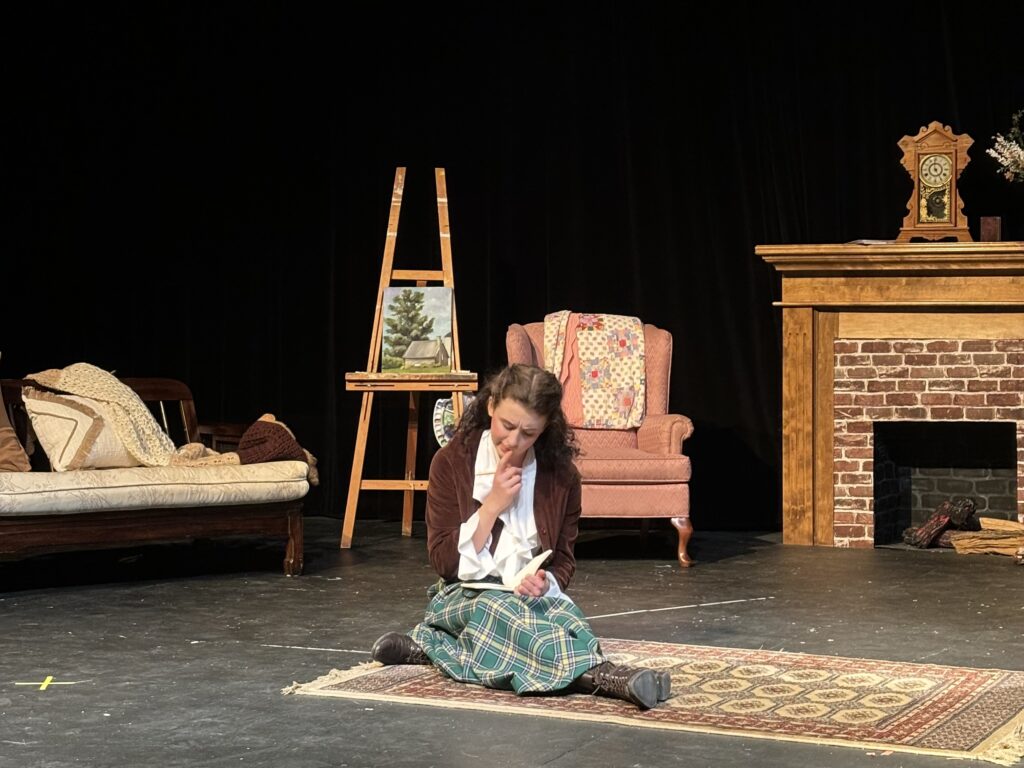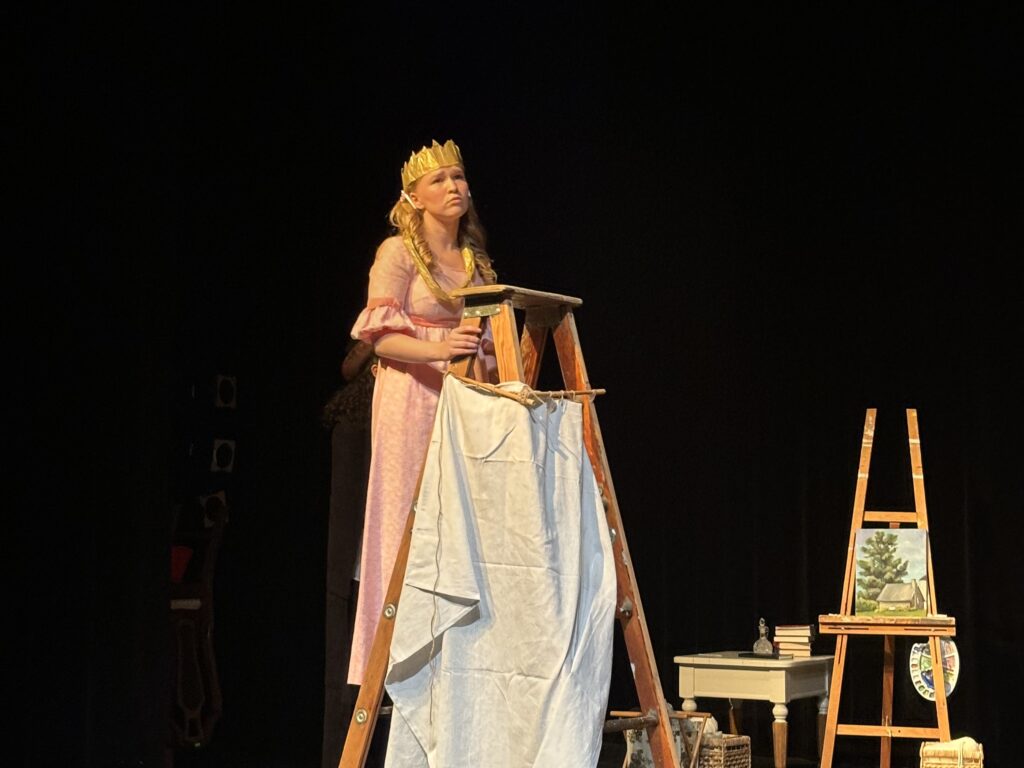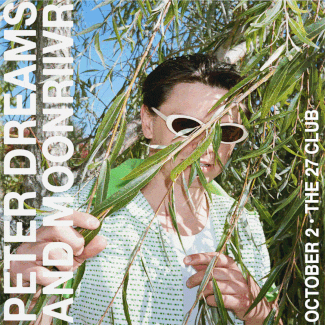Luscious green garlands line the top of the embered fireplace, and a modest Christmas tree perches in the corner of the golden-tinged living room. It’s Christmas Eve, and the four March sisters are bustling about: Meg tending to the ornamented tree, Beth dabbling a soft melody at the piano, and Amy labouring over her drawings. Then, loud and boisterous storms in Jo. With dishevelled hair and a lively stance, she is ready to conquer the world that tries to stifle her flair.
Thus begins Little Women, adapted for the stage by Scott Davidson from Louisa May Alcott’s classic novel. In Rorey Brown’s directorial debut, uOttawa Theatre Club’s recent production was led by a warmhearted cast, navigating the passage of youth to adulthood with playful tenderness.
Running at the University of Ottawa’s Academic Hall until Jan. 28, Meg, Jo, Beth and Amy come of age during the American Civil War. They laugh, cry, and fumble through childhood with the help of Marmee (“mother”), Aunt March, and Laurie Lawrence, their rambunctious next-door neighbour. Though eternally bound by love, each sister carries a flame sparked by a dream they nurture on their own.

Anna Gray as Jo March. Photo provided by Alexa MacKie.
Those individual dreams are the epicentre of this production. Though working with a script that sacrifices important bits in the novel—notably Laurie’s hard-exterior but loving grandfather and the scene where Amy burns Jo’s manuscript—uOttawa Theatre Club ensured a heartfelt arc for every sister.
Anna Gray’s Jo March burst with untameable, youthful energy. The wildness of her stomps and flailing limbs solidified her ostentatious nature, and her eyes shone with gritty determination instead of wistful longing when she spoke of becoming a writer. Gray maneuvered Jo’s emotions through joy, grief and loss of childhood innocence with subtle eye flickers and steady intensity.
Balancing out Jo’s mischievousness was prim and proper Meg and sweet-natured Beth, played by Sydney Williams and Alana Malanga, respectively. Williams’ Meg emulated eldest-sister responsibility. She kept her hands neatly placed in her lap, coupled with a polite smile and comforting gaze. As Beth, Malanga carefully kept to the sidelines and observed her sisters with a soft expression of loving warmth.
Easily the most eccentric, Olivia Voisey’s sneers and pouts as Amy were masterfully comical. Her voice—a bratty whine laced with longing to be respected—accentuated Amy’s immaturity in childhood, but deepened to a milder timbre as she matured into her responsibilities as Aunt March’s companion in Europe and Laurie’s wife.
Andrew Lemieux’s awkwardly endearing Laurie was most comfortable alongside Jo. Lemieux and Gray were all smiles and hearty laughs for a playful sword fight, then hopelessly gutted during Laurie’s failed marriage proposal. The script did not devote enough time to Amy and Laurie’s relationship, which made their marriage more jolting than it already is in the novel. However, Lemieux’s raucousness and uncoordinated demeanour mirrored Gray’s boyish antics as Jo, which amplified their destructiveness as a potential romantic pairing.

Olivia Voisey as Amy March. Photo provided by Alexa MacKie.
As the characters grew up, so did Sorsha Perry’s costumes and hair stylings. Beth began the story with a beige-green checkered skirt, and her colour palette slowly shifted to pale white as her illness worsened. Meg donned a calming navy blue skirt, then switched to a full gown of the same colour after marriage—a subtle hint of her maturity which was even present in her youth. Amy’s hair, curled and in pigtails, reflected her immature childhood. Her later pale-pink, lace-lined dress paired with pinned-up hair then highlighted her full growth and emotional journey.
With arguably the most bitter-sweet character transition of all, Jo’s shining golden skirt as a youthful scribbler symbolized her hope for the everlasting sunny life of her childhood. Her eventual earthier tones then expressed her disillusioned maturity and the trials she faced. But her spark was never fully lost, illustrated in the golden accents on her skirt and her ruffled white blouse.
In uOttawa Theatre Club’s Little Women, life’s pleasures and misfortunes forge the March sisters’ paths. The plot is as uncomplicated as uOttawa’s production, which adeptly focuses on individual journeys through girlhood instead of grandiose adventure. And perhaps that’s what draws audiences to the story—a longing for a simple life, coupled with human emotion and willingness to chase down a dream.
uOttawa Theatre Club’s Little Women is running at the University of Ottawa’s Academic Hall until Sunday, Jan. 28. Tickets are almost sold out, but a few spots remain for their Saturday and Sunday 2pm and 7pm shows. Tickets can be purchased here.










